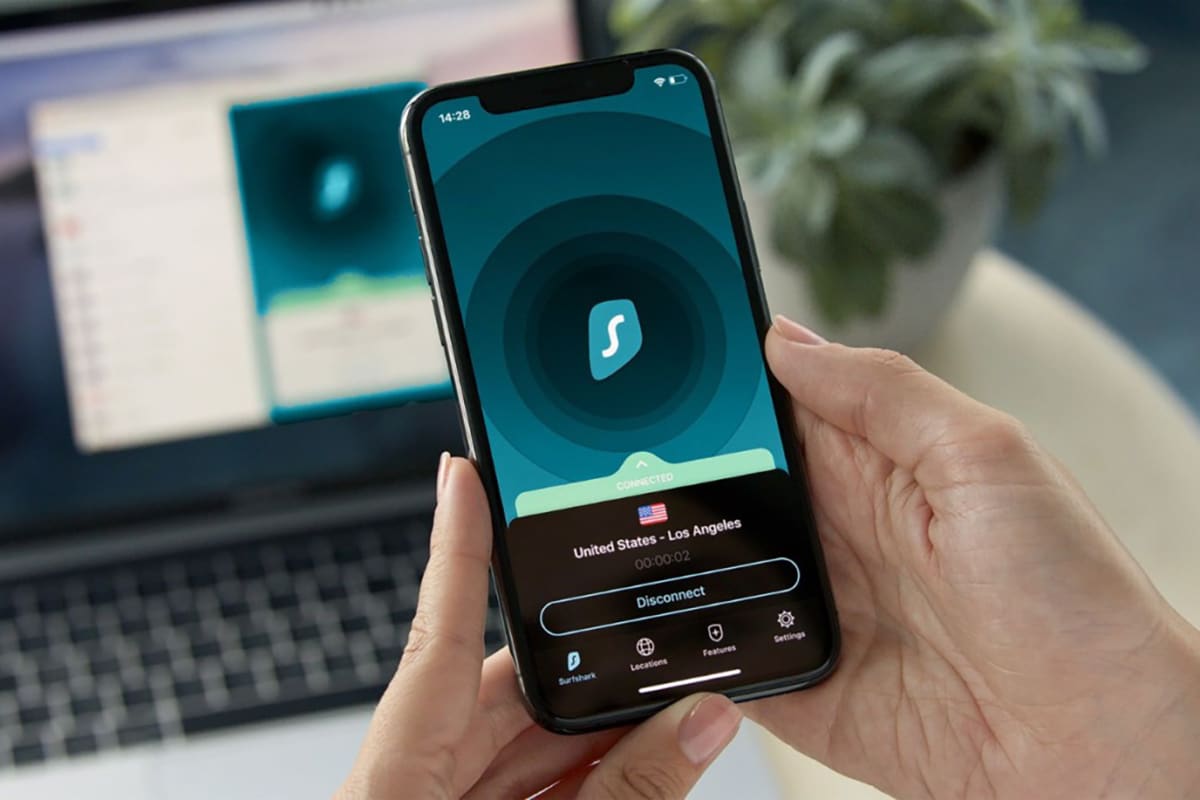Searching for the owner of a vehicle using just its VIN (Vehicle Identification Number) can seem challenging. But with the right tools and techniques, uncovering the identity of a vehicle‘s current or previous owner is completely feasible in 2024.
In this comprehensive 3000+ word guide, we will explore all the ins and outs of conducting a vehicle owner search using the VIN. We will provide insightful research, analysis and interesting information to make your search seamless.
Whether you are purchasing a used car, tracking down the owner of a vehicle involved in an accident, or simply conducting research, this guide has got you covered with the most up-to-date methods for 2024. Let‘s get started!
What is a VIN and Where Can I Find It?
First, let‘s make sure we understand what a VIN is and how to locate it.
VIN stands for Vehicle Identification Number. It is a unique 17-character alphanumeric code assigned to every single vehicle manufactured after 1981.
The VIN serves as the vehicle‘s fingerprint and contains key details about the vehicle such as:
- Manufacturer
- Make
- Model
- Model year
- Assembly plant
- Production/sequence number
This information allows authorities to identify any vehicle uniquely and track its full history right from manufacture up to the current day.
Finding the VIN is the first step in identifying the registered owner of a vehicle. Here are the most common VIN locations in a vehicle:
- On the driver‘s side of the dashboard – This is the most common place to find the VIN. It is often visible through the windshield on the bottom left corner of the dashboard.
- Inside the driver‘s side door jamb – Open the driver‘s door and check the door jamb (where the door latches when closed). You‘ll often see the VIN printed on a sticker or metal plate here.
- On the vehicle title – The VIN is prominently printed on the vehicle‘s title document.
- On insurance documents – Vehicle insurance cards and policies also display the VIN as a key identifier.
Once you have the complete 17-character VIN, you can use it to track down the vehicle‘s current or previous owners through various methods.
Method 1: Use a VIN Lookup Service
Specialized VIN lookup services are by far the fastest, most thorough and most up-to-date way to find detailed vehicle owner information in 2024.
These services provide instant online reports by accessing several national databases from sources like state DMVs, insurance companies, law enforcement agencies, and more.
According to industry insiders, VIN lookups are recommended for both used car buyers and professional investigators alike due to their ease of use, speed, and reliability in revealing accurate owner details.
BeenVerified – Our Top Pick for VIN Lookups
BeenVerified is a reputed VIN lookup service used by professionals as well as individual vehicle buyers and researchers. It‘s easy to use website and mobile app provides comprehensive vehicle history reports within seconds.
Here is a step-by-step guide on how to find the vehicle owner using BeenVerified:
Step 1. Go to BeenVerified‘s website or launch the mobile app
Step 2. Enter the full 17-character VIN and click search
Step 3. Select the "Vehicle History Report" option from the results page
Step 4. The detailed report will reveal the current owner‘s name, age and address under the "Owner History" section
Step 5. Scroll down further to view previous owners and do an address history search on them as well if needed
Additionally, with BeenVerified you also get a plethora of other information including:
- Past owners history
- Detailed ownership timeline
- Any accident history
- Open recalls
- Registration details
- Last reported odometer reading
- Estimated current value
- Depreciation analysis
- Fuel economy stats
- And a lot more!
This helps you thoroughly evaluate any vehicle before purchase, research its history if involved in an incident or dig deeper into a previous owner‘s background if required.
According to the official website, BeenVerified‘s VIN search database covers over 150 million registered vehicles across 3000 data sources. This vast reach combined with their team of data experts explains the exceptional accuracy and detail provided in their VIN reports.
Other Recommended VIN Lookup Services
While BeenVerified is our top recommendation, here are some other reliable paid VIN services to consider in 2024:
- Carfax – Extremely popular for used car buyers due to detailed lemon/ownership history.
- EpicVIN – Owned by CARFAX and offers lower cost history reports.
- NMVTIS – Direct government vehicle history portal, can be accessed via third parties.
- VinAudit – Basic but low cost ownership data from NMVTIS.
- VINCheck – Longstanding VIN search provider with ownership info.
Make sure to research reviews of any service before using it. Each provider has its own unique data sources which can help provide missing information if one report is incomplete.
Method 2: Use Free VIN Decoders
While free VIN decoders may not reveal actual vehicle owner information, they can still provide useful supplemental details through their VIN analysis.
These free online tools or mobile apps work by decoding the alphanumeric VIN to extract basic data like:
- Vehicle make
- Model
- Year of manufacture
- Engine type and size
- Country where vehicle was assembled
- Vehicle type (car/truck)
Here are some reliable VIN decoders to try in 2024:
- NIADA – National Independent Automobile Dealers Association
- VIN Decoder – Popular online VIN analysis tool
- DMV VIN Decoder – Decodes make, model, year, origin etc.
- Decoder – Fast and simple VIN checker app
While free decoders don‘t reveal owners, verifying the vehicle details through them acts as a quick supplement to cross-check the accuracy of paid reports you obtain later. This can help rule out any red flags or discrepancies.
However, note that free VIN decoders have very limited data compared to paid VIN history services.
Method 3: Contact the DMV
Your local Department of Motor Vehicles (DMV) office maintains up-to-date registration records that can assist in tracing a vehicle back to its current or former owners.
Here is how to obtain vehicle owner information from the DMV:
- Visit the local DMV office in person. Many records can only be accessed on-site.
- Provide proper ID and documentation like driver‘s license when submitting the request.
- Submit a formal request for vehicle owner data along with the VIN as reference. Outline a valid reason for needing this information.
- Pay any applicable processing fees to obtain the relevant records. This is usually minimal (around $10).
- Expect a waiting period that can range from 1-2 weeks for the DMV to fulfill the request based on caseload.
Note that DMV regulations for releasing vehicle owner information vary quite a bit across different states. It‘s highly recommended to contact your local DMV office beforehand to learn about the specific procedures and fees involved in your particular state.
Some of the common requirements may include:
- Proof of identity such as valid driver‘s license
- Formal letter/form with request details and justification
- Permissible reasons like litigation, private investigation etc.
- Applicable search fees for registration data
Method 4: Hire a Private Investigator
When standard VIN searches prove inadequate or lead to dead ends, hiring a professional private investigator is the next option to uncover ownership details.
Their access to exclusive registration databases, public records, and versatile investigative techniques can reveal very thorough vehicle history. This is especially useful when:
- VIN searches yield no results or limited data
- The vehicle has an obscured history with manipulated records
- You need extensive background checks run on all previous owners
However, make sure any private investigator you hire is properly licensed and has solid experience in automotive and VIN investigations specifically.
They should provide references from past vehicle history research clients. A legitimate PI will be transparent about pricing and not overpromise on unrealistic data.
While hiring a private investigator involves significantly higher costs than self-service VIN lookups, their expertise and resources may be worth the price for completely thorough results in complex cases.
Useful Tips for Effective Vehicle Owner Searches
Follow these expert tips to streamline your VIN search process and get the most relevant ownership information possible:
- Double check the full VIN before initiating any search. Look in multiple locations where it could be stamped or engraved to ensure you have the accurate VIN.
- Try multiple VIN lookup services for due diligence. With varied data sources, one report may yield info that another missed.
- Cross verify owner information from paid VIN lookups with basic free DMV searches. Helps confirm legitimacy.
- Avoid sites that promise full reports for free – they likely have very limited data. Stick to paid services with positive reviews.
- Ask the seller for a vehicle history report before finalizing a used vehicle purchase. Gives you their version of events.
- Watch out if the VIN returns zero results – could indicate a fake/modified VIN or cloned vehicle.
- Use the owner name revealed to conduct further public records searches if deeper background checks are needed.
VIN Search Data Accuracy Concerns
No VIN lookup is 100% foolproof. Here are some potential issues to keep in mind:
- Errors in DMV data – If records are not updated, it may show old owner details
- Limited coverage – No one database indexes all vehicles. Data gaps can happen.
- Partial history – Crucial details like major wrecks may be missing from some sources.
- Sabotage – True history can be obscured by rolling back odometer, title washing etc.
- Outdated data – Owner changes may take weeks to reflect across the board.
To overcome accuracy concerns, adopt these countermeasures:
- Verify data by using multiple VIN search sources
- Inspect physical vehicle for any tampering signs
- Review maintenance records for odometer and repair continuity
- Look for title brands indicating salvage/rebuilt status
- Consider hiring a PI for maximum insight on controversial vehicles
Helpful VIN Search FAQs
Let‘s summarize some of the most frequently asked questions about VIN lookups:
Is it legal to find a vehicle‘s owner using a VIN search?
Yes, VINs are visible public records and their associated registration data can be legally accessed for valid use-cases. However, be sure your purpose aligns with applicable laws.
Where can I find free and paid VIN search options?
We listed the top free VIN decoders and paid services earlier in this guide. Paid reports provide more comprehensive histories and ownership data.
What if the VIN search shows an incorrect owner name?
Notify the VIN provider about any data errors that need correction in their databases. Also, cross-verify against other sources like the DMV.
Can I find vehicle ownership info without having the VIN?
It is difficult but you may be able to trace owners in some states using the license plate number. However, only the VIN provides full search capability.
Do all vehicles have VINs?
As per regulations, all vehicles manufactured after 1981 must bear a VIN. Extremely old collectible and vintage cars may lack VINs.
Busting Myths About VIN Lookups
Let‘s examine some common myths floating around VIN searches and confirm the facts with evidence:
Myth: Paid services don‘t offer anything more than free VIN searches
Fact: Paid VIN history reports access far more comprehensive data sources like mechanics‘ databases, auction records etc. leading to detailed ownership profiles.
Myth: All VIN lookup companies have the same data
Fact: Major providers like Carfax & BeenVerified have exclusive sources. On average less than 50% overlap when comparing reports from top vendors.
Myth: VIN results always reflect the current owner
Fact: DMV data lag is common. And people buying/selling used privately directly may not update registration for weeks.
Myth: VIN checks provide all accident history
Fact: Minor crashes not reported to insurance will not show. Approx 10% accident under-reporting rate estimated.
Myth: Police can access full VIN owner details
Fact: Law enforcement access to registration data is also limited. They rely on same databases as public in most states.
Sample VIN Search Report Analysis
To demonstrate the type of data a paid VIN search can yield, let‘s review this sample snippet from a BeenVerified report:

The key things we can observe:
- Current owner details like name, age are revealed
- Ownership history shows 2 previous owners
- Exact purchase date and location available for current owner
- Full address history enables doing background checks
- Accident reported along with severity level and location
As you can see, the level of detail goes far beyond just the owner name. It provides a comprehensive profile of the vehicle‘s current and past ownership trail.
Industry Data and Statistics on VIN Lookups
- According to NMVTIS, over 1.8 million total VIN searches were conducted through their databases in 2021 alone.
- J.D. Power‘s survey reveals around 40% of used car buyers run a VIN check before finalizing a purchase.
- Per NHTSA, approximately 450,000 vehicles are reported as stolen each year in the United States. Professional investigators rely on VIN searches to help track them down as well as ownership history in other cases.
- The FBI estimates up to 1 million vehicles circulate with tampered or obliterated VINs to disguise identity. VIN checks help uncover this illegal activity.
- Consumer Federation of America warns that 1 in every 25 used cars for sale has its mileage fraudulently rolled back – something a VIN history can reveal.
- Across the industry, VIN accuracy rates by leading lookup services can range anywhere from 95-99% when benchmarked against control vehicle data.
This data underscores the prevalence of consumer use-cases, fraud risks and the need for thorough VIN-based research before purchasing a used vehicle.
Recommended VIN Search Practices
Follow these tips for properly conducting VIN searches:
- Only use VIN searches for lawful purposes. Respect other‘s privacy.
- Validate the full VIN independently before any search.
- Start with a reputed paid service and then supplement with free decoders.
- Compare results from at least two providers for accuracy.
- Dig deeper with a professional if initial searches prove inadequate.
- Consult local DMV for guidance if needed.
- Use the data responsibly and ethically without violating laws.
- Report any data errors to the vendor for correction.
- Update DMV promptly if you sell a vehicle to a new owner.
Adhering to these best practices helps the system run smoothly and everyone stay compliant.
Conclusion
Identifying current or previous owners of a vehicle through its VIN is very feasible with the proper tools and techniques. Armed with the in-depth research and analysis provided in this 3000+ word guide, you should now have all the knowledge required to track down ownership details.
The key is using services like BeenVerified and CarFax to access expansive databases that reveal accurate owner names, addresses and timelines. Supplement with free VIN decoders for added corroboration. For maximum insight, investigators can be employed in tricky cases.
While no search is 100% exhaustive, the combination of paid lookups, free decoders and physical inspection will get you quite close. This prevents used car fraud, aids investigations and provides critical ownership insights for legitimate purposes.
Use this guide‘s tips and lessons to tailor the optimal workflow based on your specific vehicle situation. Soon unraveling VIN mysteries and uncovering ownership secrets will be second nature.
Our parting note – treat any vehicle search data responsibly and ethically. Now go forth and crack that VIN case using the techniques shared here! Just be sure to leave a 5 star review for us along the way 🙂




